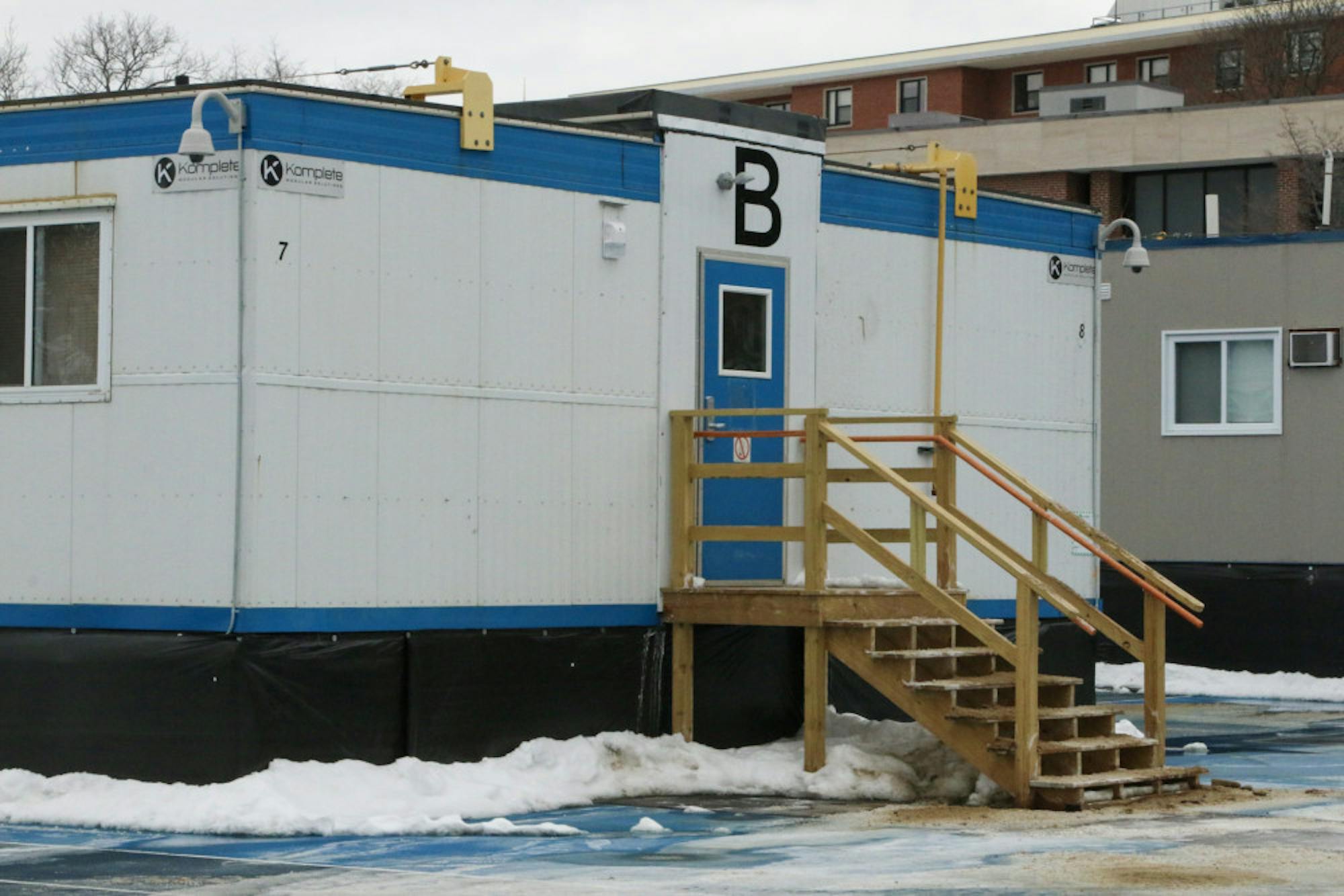Boston-area schools are seeing some variations in their COVID-19 policies now that thousands of college students have returned for the spring semester. At Tufts and other colleges and universities in the area, academic and social precautions continue to shift as infection rates fall from their latest peak. Most recently, Tufts decreased surveillance frequency from every other day to two times per week for all students, beginning Feb. 7.
Shira Doron, an infectious disease physician and hospital epidemiologist at Tufts Medical Center, explained why some universities, like Tufts, began their semesters online while others reopened in person immediately.
“A main reason is that policy is not solely driven by science, but by a combination of science and values,”Doronwrote in an email to the Daily.
Tufts, Harvard University, Boston University and other Boston schools all require students to participate in routine surveillance testing for COVID-19. However, there are also variations between these universities' policies.
Kya Pierre-Dawkins, a first-year student at BU, explained what the return to her campus has looked like.
“[In the fall semester], we got tested once a week,” Pierre-Dawkins told the Daily. “We had a daily screening that we had to do in order to get a green badge, and then green badges were checked in order to get into dorms.”
Now, students test two times per week and BU has eliminated the daily symptom attestation. Despite these precautions, Pierre-Dawkins said that not much has changed since her first semester.
“That's pretty much it. Two times a week testing and nothing's really changed in terms of social life or academically,”she said.
Harvard students also returned to in-person learning immediately following their winter break.
“Some classes, depending on the professor, started the first class on Zoom just while people were coming back to campus,”Ariel Beck, a first-year student at Harvard, said. “Right now, all classes are fully in person.”
Whereas Tufts continues to isolate COVID-19-positive individuals in The Mods, Harvard now asks on-campus students who test positive to quarantine in their dorm rooms instead of in designated quarantine housing.
“You can only really leave to go to the dining hall to pick up food,” Beck said. “You have to try and stay in your dorm as much as possible.”
One area where these schools' policies dovetail is booster shots. Like Tufts, Harvard and BU currently require all eligible students to receive a COVID-19 booster shot. As part of its reopening plan, Tufts announced that eligible students must receive a booster shot before Feb. 15.
Other initial precautionary measures at Tufts included a temporary shift to grab-and-go dining and the closure of gyms, in addition to a brief return to online classes from Jan. 19 to Jan. 24.
Doron emphasized that different institutions calculate the risks and benefits of COVID-19 precautions differently.
“What makes it so difficult is that everyone’s values are so different,” Doron wrote. “Some people place great value on avoidance of infection while others place great value on normalcy of the college/university experience.”
University Infection Control Health Director Michael Jordan explained in an email that Tufts tailored its COVID-19 policies specifically to its community.
“While we are in communication with other schools - for example, our NESCAC counterparts – to share information, the policies that we have adopted are based on the data that we see within our own community and local neighborhoods and are devised to respond to our university’s specific circumstances,” Jordan wrote. “Throughout the pandemic, we have taken a data-driven approach to our decision making and have focused on flexibly adjusting our policies accordingly, with our top priority being the health and safety of our university community and our neighbors.”
As the spike in local and university cases seems to be dropping, Tufts Health Service has responded accordingly.
“Our most recent changes to our guidelines are a reflection of the encouraging data we are seeing, which indicate that the surge is waning,” Jordan wrote.“We are hopeful that we are moving in a promising direction and that relaxing our policies further might be possible in the near term.”






